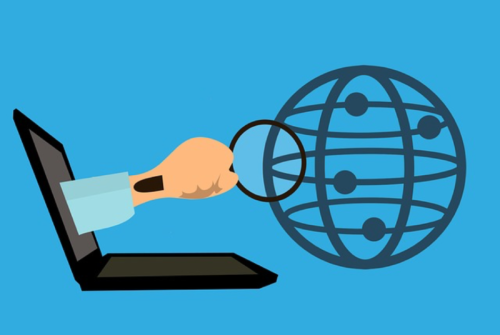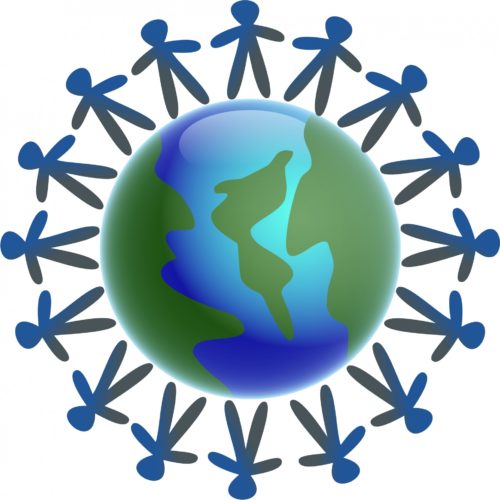I know that you’ve been victimized by slow upload speeds one way or another. It could be that you’re in a rush to meet a deadline. You cram all your work and manage to finish just in the nick of time. Just when you’re about to send your work through email, your upload speed fails you. Or, it could be that you’re teaching an online class for a company with a very strict etiquette on timeliness. Just when you’re about to send the material to your student, your upload speed fails you – yet again.
 Both upload and download speeds are crucial for people like us who largely live online. For those of us who study, work, play, and communicate in cyberspace, speed is a do-or-die factor (Check out why you should invest in website speed more here: https://www.howtogeek.com/217627/htg-explains-should-you-pay-more-for-a-faster-internet-connection/).
Both upload and download speeds are crucial for people like us who largely live online. For those of us who study, work, play, and communicate in cyberspace, speed is a do-or-die factor (Check out why you should invest in website speed more here: https://www.howtogeek.com/217627/htg-explains-should-you-pay-more-for-a-faster-internet-connection/).
Our lifestyle practically depends on it. Throughout the years, telecommunication companies have bested their best in trying to bring us high-quality and hyper-speed internet (we should at least recognize that much of their efforts). However, there are people (like me and you, probably) who still demand for an even faster internet. Seeing the screen buffer and load for minutes seems to kill something inside of us. And that is in no way healthy, I dare say.
Slow Speeds = Stress
Don’t you agree? It’s high time that you demand for something better – I know I did, and look where it got me.
I made the switch, the VPN switch. And boy, will it make you happy.
You Might Also Enjoy: An Introduction to Usenet
What Is VPN?
VPN is an acronym that stands for Virtual Private Network. It’s a privately hosted network for exclusive members. There are many advantages to using a VPN network. To summarize my experience, here’s what I got from using a Virtual Private Network:
-
Secure Encryption of Personally Identifying Information
There is nothing more dangerous than leaving your personal data open for the whole world to see – and possibly exploit. Sure, you’re not Mark Zuckerberg, Oprah, or Queen Elizabeth but trust me, the dark net can misuse your non-billionaire personal information in more ways than one. Personal data is one of the most sensitive types of information there is. And ironically, it’s also one of the most commonly disclosed information online. You may not see the harm in it right now since nothing has happened thus far but that’s exactly the point. Don’t wait for it to happen. When it does, you can expect a disaster – no, a catastrophe depending on how much personal data you have disclosed. Names, phone numbers, addresses, credit card numbers, identification cards, and other sensitive documents can be used to your disadvantage. You can be robbed – maybe not of money, but of identity! And that is much, much worse.
A VPN network can help conceal your identity when browsing online. It can even disguise your IP address to make your surfing experience all the more safe. When I started using VPN, I don’t get as much targeted ads and mysterious emails selling me stuff I don’t even know about. Keep your personal information safe; use VPN. Need to know more? Here are other significant benefits!
-
Safe Browsing
 This one is a huge benefit. Thanks to my personal information being concealed, I can safely navigate from one website to another with zero worries. You think of a VPN as some sort of tunnel, you see, and your PC (or laptop, or tablet, or whatever) is the train. Your train is marked with a unit number (IP address) that other train stations can use to track you with. When you go into the VPN tunnel, the magic ensues. Bippity-boppity-boo! Your unit number or IP address changes into random, impersonal digits. This is done to make sure that your personal data is kept away from prying eyes.
This one is a huge benefit. Thanks to my personal information being concealed, I can safely navigate from one website to another with zero worries. You think of a VPN as some sort of tunnel, you see, and your PC (or laptop, or tablet, or whatever) is the train. Your train is marked with a unit number (IP address) that other train stations can use to track you with. When you go into the VPN tunnel, the magic ensues. Bippity-boppity-boo! Your unit number or IP address changes into random, impersonal digits. This is done to make sure that your personal data is kept away from prying eyes.
Now, you don’t have to worry about unintentionally (or intentionally, if you know what I mean) visiting a malicious website. The servers of that website can’t track or trace the origin of your access thanks to the Virtual Private Network.
-
Access To Geo-Specific Websites
 Have you ever been blocked off a website? Like, you really want to read an article, for example, but something’s keeping you from it. Usually, you’ll see a notice or message pop up in your screen, stating “This website is unavailable in your location” or “Oops! We seem to have encountered a sudden interruption.” When you read something similar to these lines, then there’s a pretty good chance that the website is only available to a certain place – usually, a country.
Have you ever been blocked off a website? Like, you really want to read an article, for example, but something’s keeping you from it. Usually, you’ll see a notice or message pop up in your screen, stating “This website is unavailable in your location” or “Oops! We seem to have encountered a sudden interruption.” When you read something similar to these lines, then there’s a pretty good chance that the website is only available to a certain place – usually, a country.
With a VPN network, you will never feel isolated again. Aside from masking your IP address, a good VPN network can also disguise your geological information and make it seem like you’re from the website host’s country or that you’re within the allowable vicinity. It’s a pretty huge perk, really, primarily because you can gain a lot of information by accessing geo-protected sites.
-
Faster Upload Speed
One last brilliant thing I’ve experienced with a VPN network (so far) is the lightning fast upload speed. The download speeds are pretty good too. You can actually check out which networks are best to join using websites like Fastest VPN Guide’s rankings. Virtual Private Networks often operate using their own private servers and only members can connect through these servers. Most speed problems arise from the too-populous number of people connecting to the same server at the same time. Just like a congested road, the speed of the internet will slow down when there’s too much traffic. VP networks make sure that they limit the amount of traffic that flows towards their servers in order to maintain the browsing quality users experience during the course of their subscription. Without doubt, Virtual Private Networks outdo telecommunication companies when it comes to speed and quality.
I’ve tested and proven the convenience and handiness of joining a Virtual Private Network but hey, better not just take my word for it. Experience it for yourself and tell me what you think! I’d appreciate it if you can share your own experience with VPNs here as well.
Here’s to faster internet speeds!